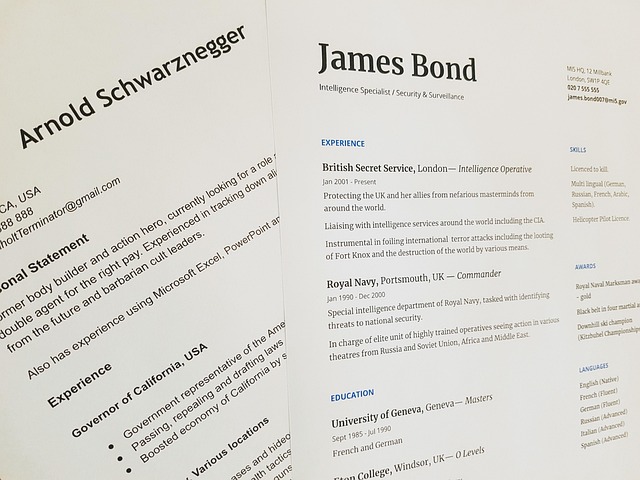Prevent frozen pipes in your kitchen by understanding common causes like poor insulation, gaps around fixtures, and inadequate ventilation. A kitchen plumber specialist can help with tailored solutions for future-proofing, enhancing efficiency, and reducing plumbing disasters. Insulate at-risk pipes near exterior walls or uninsulated areas, check for leaks regularly, and install proper ventilation systems. Trust local specialists for prevention, repair, and best practices like replacing faucet aerators to regulate water flow and temperature. Regular maintenance ensures efficient kitchen plumbing year-round.
Keep your kitchen running smoothly all year round by understanding and preventing frozen pipes. This comprehensive guide delves into the common causes of pipe freezes, emphasizing insulation as a powerful tool for homeowners. Learn best practices for heating and ventilating your space effectively. Know when to call a professional kitchen plumber specialist and discover preventative maintenance tips for long-term protection against these pesky issues.
- Understand Common Causes of Frozen Pipes
- Insulate Pipes: A Homeowner's Guide
- Best Practices for Heating Your Kitchen
- Maintain Proper Ventilation in Kitchens
- Call a Kitchen Plumber Specialist When Needed
- Preventative Measures: Regular Maintenance Tips
Understand Common Causes of Frozen Pipes
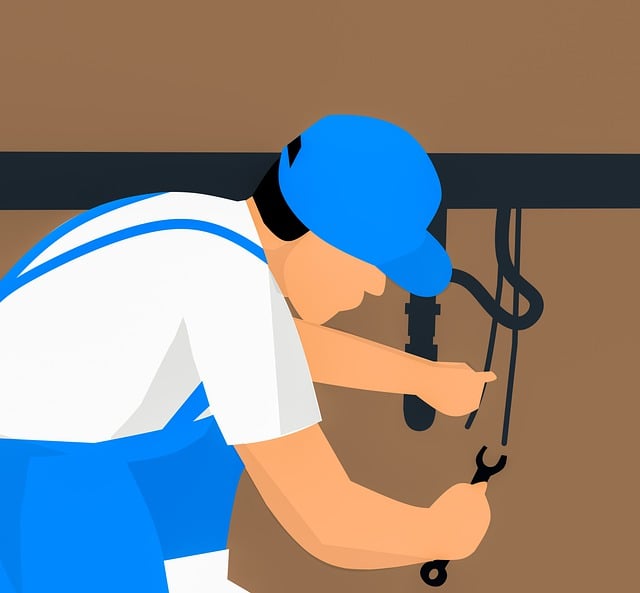
Understanding the common causes of frozen pipes is the first step in preventing this winter woe. Kitchen pipes are particularly vulnerable to freezing due to the constant exposure to cold temperatures and varying water flow rates. Common culprits include poorly insulated pipes, gaps around fixtures, and inadequate ventilation. A kitchen plumber specialist can help identify these issues and offer tailored solutions for future-proofing your space.
By addressing these problems proactively, you not only reduce the risk of frozen pipes but also create an efficient layout that supports smooth daily operations. Additionally, learning how to unclog a kitchen sink naturally can provide immediate relief during unexpected clogs, further enhancing your home’s resilience against plumbing disasters.
Insulate Pipes: A Homeowner's Guide
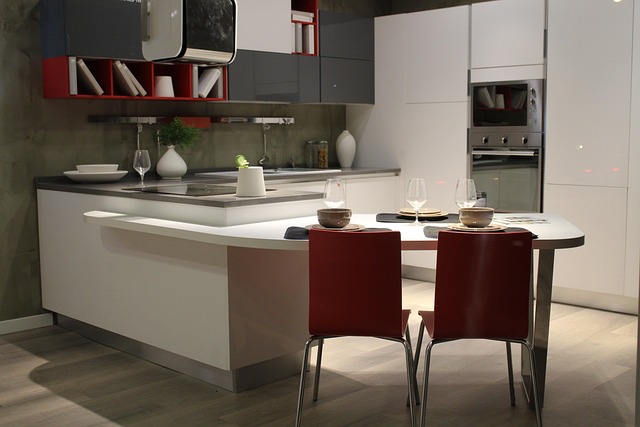
Insulating your kitchen pipes is a simple yet effective way to prevent freezing and potential damage during cold winter months. As a homeowner, understanding this process can save you from costly repairs and unwanted disruptions. Start by identifying the pipes most at risk—typically those exposed to extreme temperature changes, such as those near exterior walls or in uninsulated spaces.
A kitchen plumber specialist can guide you in selecting the right insulation materials for your needs. Fiberglass insulation is a popular choice due to its affordability and effectiveness. Properly installed, it creates a barrier that prevents heat loss, keeping water within the pipes at a safe temperature. Remember, checking for leaks is crucial; regular inspection ensures any issues are caught early. Moreover, consider the plumber’s role in design—they can offer valuable insights into pipe placement and potential problem areas during new construction or renovations. For top-rated kitchen plumbers in [City Name], look no further than local specialists who specialize in both prevention and repair.
Best Practices for Heating Your Kitchen

Maintaining a comfortable temperature in your kitchen is key to preventing frozen pipes during colder months. A kitchen plumber specialist recommends several best practices for efficient heating. Start by ensuring proper insulation around pipes, especially those exposed or near exterior walls. This simple step significantly reduces heat loss and keeps water flowing at the desired temperature.
Regularly checking for leaks and addressing them promptly is another crucial practice. Even a tiny leak can lead to significant water damage and increased energy bills. A kitchen pipe leak repair might seem like a daunting task, but early detection and a quick fix can prevent major issues. Additionally, consider replacing your kitchen faucet aerator—a simple, cost-effective measure that can help regulate water flow and temperature, reducing the risk of freezing.
Maintain Proper Ventilation in Kitchens
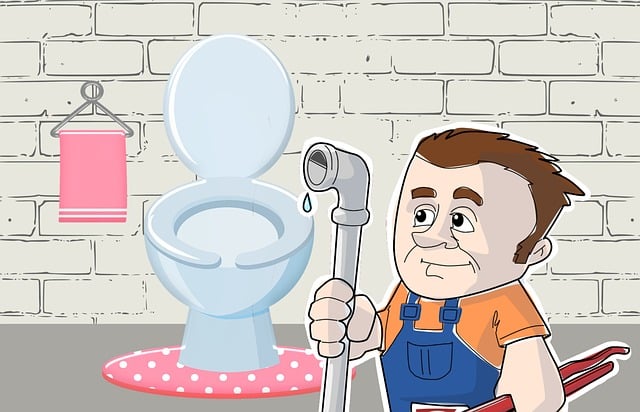
Maintaining proper ventilation in your kitchen is a key strategy to prevent frozen pipes during cold weather. Kitchen plumbers often recommend creating an efficient layout that allows for adequate airflow. This involves ensuring windows and doors are not blocked, using exhaust fans over stovetops, and incorporating range hoods or under-cabinet ventilators. A local emergency kitchen plumber can offer expert advice on the best ventilation systems for your space.
By addressing these aspects, you reduce the risk of moisture buildup inside cabinets and along pipes, which is a common cause of freezing. Furthermore, proper ventilation helps regulate temperature and humidity levels, creating an environment less conducive to pipe freeze-ups. This proactive approach, combined with regular maintenance checks by a kitchen plumber specialist, can protect against uncommon kitchen plumbing problems associated with frozen pipes.
Call a Kitchen Plumber Specialist When Needed
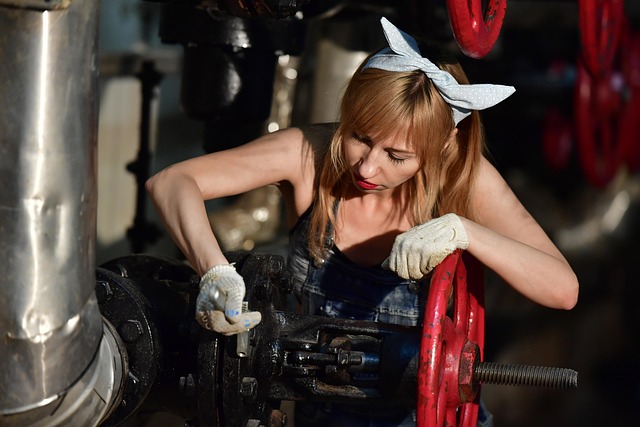
When dealing with frozen pipes in your kitchen, it’s crucial to recognize when professional help is necessary. If the issue persists or if you’re facing complex plumbing challenges like an experienced kitchen gas line installation, it’s time to call a kitchen plumber specialist. These experts possess the skills and knowledge required to navigate intricate kitchen plumbing design and offer tailored expert advice for your specific situation.
A kitchen plumber specialist can handle situations beyond basic unclogging or insulation tasks, such as repairing leaks, replacing old pipes, or installing new fixtures. Their expertise ensures that any issues are addressed efficiently, minimizing damage and potential costs associated with frozen pipes. By enlisting their services, you gain access to reliable solutions tailored to your kitchen’s unique plumbing needs.
Preventative Measures: Regular Maintenance Tips

To prevent frozen pipes in your kitchen, regular maintenance is key. A kitchen plumber specialist recommends starting with insulation—ensure pipes are adequately covered to protect them from extreme cold. This simple step can go a long way in preventing pipes from freezing and bursting. Additionally, regularly check for leaks and repair any issues promptly; even minor drips can lead to significant water damage if left unattended.
Consider installing commercial kitchen ventilation systems as these not only enhance air quality but also help regulate temperature. A well-ventilated kitchen is less prone to sudden temperature drops that can cause pipes to freeze. If you’re looking for a plumber for restaurant kitchen setup, opt for professionals who can provide tailored advice based on your specific needs and customer reviews will give you insights into the reliability and quality of service.
Preventing frozen pipes in your kitchen is a multifaceted approach that combines insulation, heating, ventilation, and regular maintenance. By understanding common causes, insulating exposed pipes, implementing best practices for heating, ensuring adequate kitchen ventilation, and knowing when to call a kitchen plumber specialist, you can protect your home from costly damage and keep your kitchen running smoothly all year round. Regular preventative measures will go a long way in safeguarding against frozen pipes, making it essential to incorporate these tips into your home maintenance routine.
